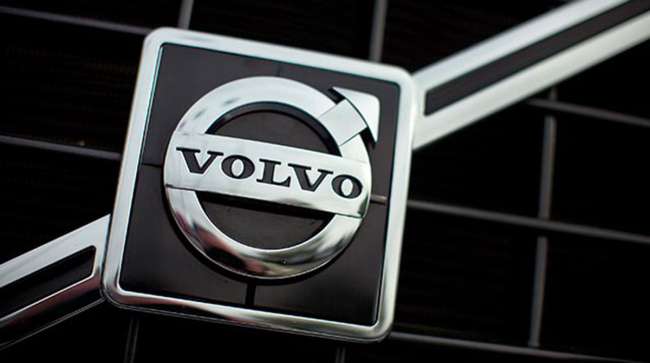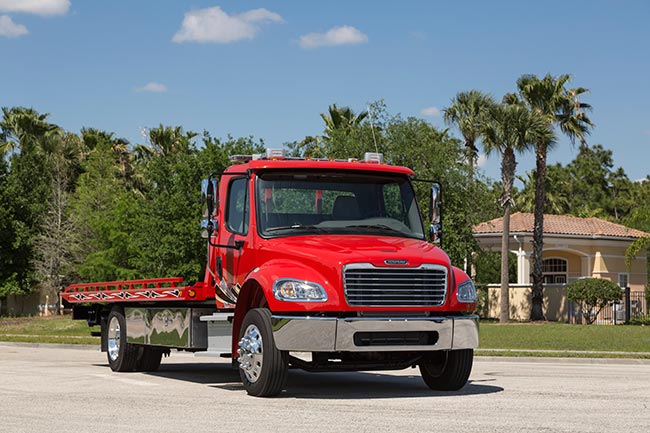Senior Reporter
Truck Makers Outline Steps to Manage Chip Shortage

[Stay on top of transportation news: Get TTNews in your inbox.]
Production of Class 8 trucks and to a greater degree of medium-duty trucks is at risk, at least in the second quarter, truck makers said, as the demand for computer chips exceeds supply in a widening environment of supply chain disruptions.
Truck production in 2021 hinges on supply not demand, one industry analyst said.
Volvo Group was the first to publicly address the worsening situation.
The Swedish company said late March in a release it will implement “stop days” across its global truck manufacturing operations. In total, these are currently estimated to between two and four weeks depending on production site.

Halprin
“At this time, I can confirm that [Volvo Truck North America’s] New River Valley plant in Virginia, is affected by the supply chain constraints facing the industry, including semiconductor shortages, as the truck demand is exceeding the supply,” Mary Beth Halprin, Volvo Group North America vice president of public relations, told Transport Topics.
“We are monitoring the situation closely as these constraints will continue in the second quarter, and we will adjust our production, if needed,” she said. “We’re working closely with our suppliers to minimize the impact on our customers.”
She added, “The semiconductor shortage is one of a number of supply constraints that we’re monitoring for potential production impact in Q2, but it’s too soon to speculate on what the impact will be, as the situation is fluid.”
Mack Trucks, also a Volvo Group brand, expects its truck plant in the Lehigh Valley to be affected.
“At the moment, we believe this will mean some nonproduction days during the quarter. The situation is fluid,” a company spokeswoman said. “We’re doing everything we can to minimize the impact, and we are maintaining the flexibility to increase production if the situation allows.”

Freightliner M2 106 model (Freightliner)
ACT Research President Kenny Vieth said it’s common for there to be pains as a cycle ramps up with demand for tires, assorted cast parts and wiring harnesses. Class 8 orders remained hot in February, reaching 44,191.
But these items, he said, are taking a “backseat to more cycle-specific constraints, which begin with the simultaneous global ramp in economic activity overlaid with pandemic-specific challenges.”
At Daimler Trucks North America, and its best-selling Freightliner brand, the company has begun revolving downtime for medium-duty production at its Mount Holly, N.C., and Santiago, Mexico, plants through June due to the global shortage of semiconductors, a DTNA spokesperson said.
“Both facilities remain open, and the use of revolving downtime will be used to maintain a reduced level of output, maintain employment levels and allow the company to move back to full-scale production immediately should the situation be resolved sooner,” he said.
The Santiago truck manufacturing plant can produce the medium-duty Freightliner M2, as well as the heavy-duty Coronado, Cascadia and New Cascadia models.
The Mount Holly Truck Manufacturing plant produces the full line of Freightliner medium-duty Business Class M2/SD models as well as an e-coated cab for the Western Star units, which are not affected.

Even before the pandemic, DHL's Larry S. Onge and Jim Monkmeyer set up strategies and implemented technology in order to respond to disruptions. Now, they know exactly how to get the vaccine from point A to point B — and, better, how to do it at a global scale. Hear a snippet, above, and get the full program by going to RoadSigns.TTNews.com.
Navistar Inc., the parent of the International brand, is facing similar industry shortages and is monitoring the situation with its suppliers, a spokesperson said. “At this point in time, our plants are running and continue to do so, as we manage the shortages and adjust production schedules accordingly to minimize disruption of deliveries to our customers.”
Meanwhile, Paccar Inc., parent company of the Peterbilt Motors Co. and Kenworth Truck Co. brands, said it was not commenting on the situation beyond what it stated in its latest 10K earnings report.
The report noted many of its suppliers also supply automotive manufacturers, and factors that adversely affect the automotive industry also can have adverse effects on these suppliers and the company.
“The automotive industry is currently experiencing a semiconductor supply shortage that is having wide-ranging effects across the automotive supply chain including some of the company’s suppliers,” the filing noted. “The shortage may have a short-term impact on the ability of the company to deliver products to dealers and customers.”

Tam
There’s a food chain for the consumption of parts, ACT Vice President Steve Tam said.
“The first folks to get slapped are the aftermarkets. They quit supplying parts into the parts and service business. Be it through retail outlets or even through the dealerships. Then the medium-duty production.
“The margins are better on Class 8 trucks so as the commodities, assemblies or components becomes scarce, they are going to get funneled into the higher-margin vehicles,” he said. “It’s almost a natural. It is a very logical business strategy.”
Tam said the industry doesn’t know when this situation will fix itself.
“We know it will,” he said. “It happens every time.”
Want more news? Listen to today's daily briefing below or go here for more info:

